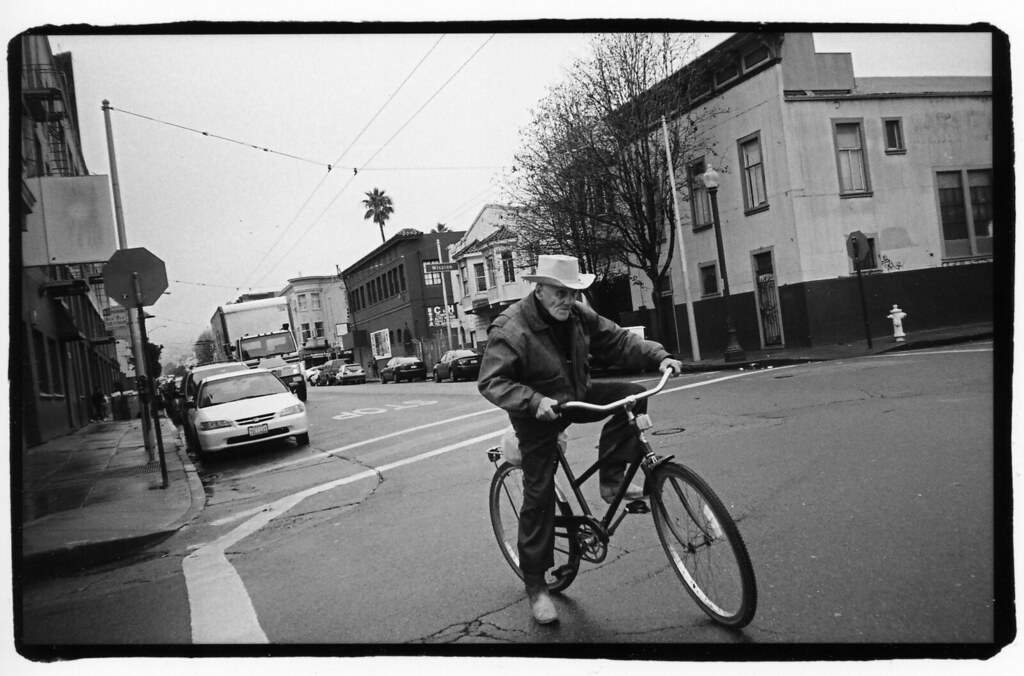John B lives, eats, and breathes music. At 85 years old, he wakes up in his single resident occupancy hotel room in the heart of the Mission District. He puts on his signature cowboy hat, boots, wrangler shirt and leather jacket. With his weathered, rugged face from years of working under the sun, John is a walking talking solitary piece of iconic Americana. He cannot work anymore in the traditional sense, but playing music is his calling. He lives off his monthly Social Security checks. The checks pay for rent, food and his assortment of musical instruments that he buys and sells at the pawn shops on Mission Street.
“I can’t make a living playing on the streets, I got to look for a job,” he says pointing down at the tip bucket with change that adds up to less than $2. On a good day, you might catch him on the corner of 16th and South Van-Ness Avenue with a portable amplifier and guitar sitting on a bench playing some old country tune. If you stay for a while and listen, you’ll hear his out of tune guitar, and off key voice singing some old indecipherable country tune. John has hearing loss and his singing and guitar is always out of tune. Perhaps no one has ever pointed that out to him or offered to tune his guitar.
“Johnny Geetar” is how he’ll introduce himself sometimes to people. He sits on his regular stool in front of the television at the diner counter for his daily dinner. The owner/cook sees him and reliably tunes the TV dial to an old sixties western film, as if channeling John’s younger days. John sips his coffee and boasts about traveling around with musicians through the country playing shows in bars and music halls. I envision Johnny Geetar, as a young man on stage in some small mid-west town jamming his heart out. Photographs, documents, records would tell a story and capture his history but John didn’t save anything from his past. His words are the only echo of a glorious past to counter any doubts that his out of tune guitar and off key voice used to once grace the stages of music halls.











